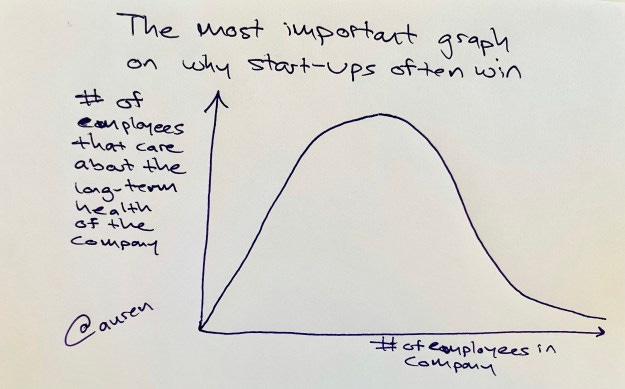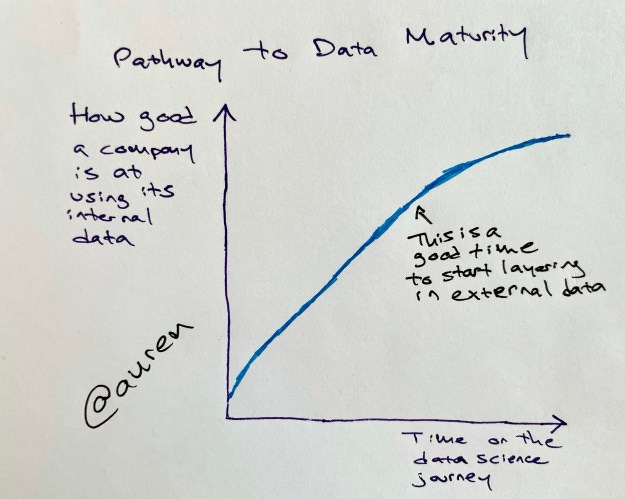Why start-ups can win
the key metric is raw number of employees that care about the long-term company
number of employees of a well-run 100-person start-up that care about the long-term company: 60
number employees of a 10,000-person company that care about the long-term company: 6
this is why start-ups can win.

This is why they do win.
The biggest predictor of whether a company will be an important company in the next ten years is the raw number of employees that really want that company to win. Not the percentage of employees, but the actual raw number.
This is why organizations with a large shared mission do so well. Some large organizations that will certainly still be important in the future include Apple, Esri, and the U.S. Military. These large organizations are the exceptions as they have a true share mission.
But most 10,000 person organizations have, at most, a handful of people who truly care about the long-term outlook of the organization.
Would love your comments.
Running an experiment — anyone in the world can rent my time
(100% of proceeds go to charity).
While we are here, below are a few graphs and tweets from the last week.
Bring in external data only after you get to proficiency with using your internal data.
But then invest heavily in external data.


To get positive returns from delegation, you initially go into a hole:






